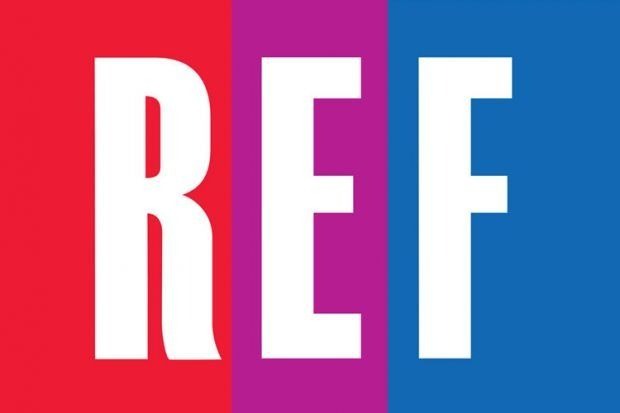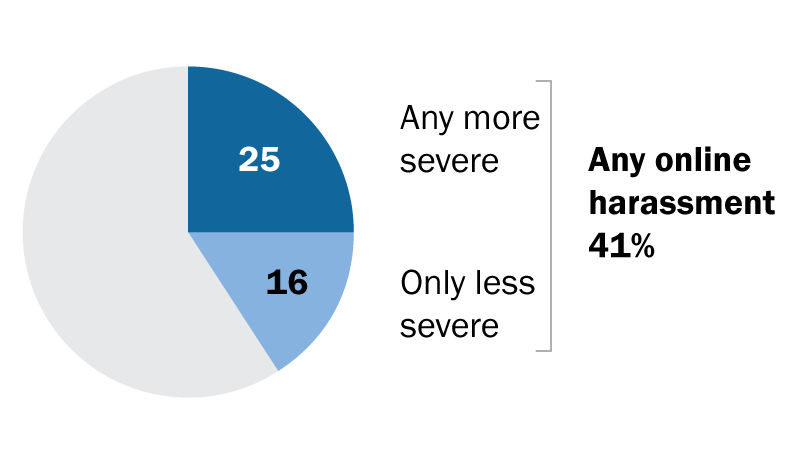Research Excellence Framework Impact Officer


Job Information
Offer description.
Job description
Building on the success of its Research Excellence Framework (REF) 2021 submission, which saw King’s College London ranked 3rd on impact amongst multi-faculty universities and the maintenance of the power ranking of 6th, we are recruiting four REF Impact Officers to support the development of the Engagement and Impact submission to REF2028.
The successful candidates will work with the Research Impact Lead team, each supporting the units of assessment aligned with one of the REF Main Panels. They will provide professional services support for all aspects of the planning and delivery of the engagement and impact submission. This includes supporting the processes for identifying and preparing impact case studies, and collating evidence of impact. They will provide training and support on the use of evidence collection software, maintain internal resources for impact (including the intranet) and will provide support as required to impact-related groups and events.
The roles will be expected to be on-campus at least two days per week.
Applicants are asked to indicate their Main Panel preference in their application.
- Main Panel A – Health Sciences and Medicine
- Main Panel B – Natural Sciences and Engineering
- Main Panel C – Social Sciences
- Main Panel D – Arts and Humanities
This post will be offered on an indefinite contract.
This is a full-time post - 100% full time equivalent.
Key responsibilities
- To work closely with the Research Impact Lead(s) aligned to the REF Main Panel to assist with the delivery of the Engagement and Impact submission to REF2028.
- Establish and maintain effective working relationships with professional services and academic staff within the relevant faculty/ies who are working on REF2028.
- Provide support for the processes for identifying and developing REF impact case studies, including gathering and collating evidence.
- Provide support for the development of unit-level REF impact statements, including data collection.
- Provide updates on progress and support the work of the REF Director as required.
- Provide training to colleagues on the use of the Hivve Evidence Vault software, as required, and provide ongoing support where needed.
- Provide secretariat support for impact-related groups, including the Research Impact Committee, as required.
- Engage in appropriate professional and training activities to maintain knowledge and skills in relation to REF and impact and to develop them further.
- To undertake other work commensurate with the post as required.
The above list of responsibilities may not be exhaustive, and the post holder will be required to undertake such tasks and responsibilities as may reasonably be expected within the scope and grading of the post.
Skills, knowledge, and experience
Essential criteria
- Educated to degree level or comparable work experience.
- Experience of research support, preferably with some understanding of knowledge exchange and/or research impact.
- Administrative experience in the Higher Education sector, ideally in an impact, knowledge exchange, communications or research area.
- Excellent IT skills, including database systems, spreadsheets and word processing.
- Excellent written and oral communication skills, with the ability to communicate clearly and appropriately with a range of professional service and academic colleagues.
- Ability to work independently and as part of a team.
- Experience of balancing competing, shifting priorities under pressure of deadlines and workload.
- Experience of note-taking or minuting meetings.
- Accuracy and attention to detail.
Desirable criteria
- Familiarity with the Research Excellence Framework.
- Familiarity with an impact tracker tool, such as Hivve Impact Tracker.
- Familiarity with collection and analysis of qualitative data.
- Familiarity with the disciplinary areas represented within the Main Panel Area.
- Ability to manage stakeholders at all levels.
Requirements
Additional information, work location(s), where to apply.
Research Excellence Manager
University of york - research, innovation and knowledge exchange directorate.
Role Description
The Policy, Integrity and Performance Team within Research, Innovation and Knowledge Exchange (RIKE) is looking to recruit a Research Excellence Manager. The team is responsible for measuring and monitoring research performance, including the coordination of the submissions to the Research Excellence Framework (REF).
The Research Excellence Manager will play a key role in the team, working closely with the Head of Policy, Integrity and Performance, Director of RIKE and Pro-Vice-Chancellor for Research, as well as other key stakeholders across the University to coordinate the University of York submission to REF 2029. As the rules for REF 2029 develop, the Research Excellence Manager will be the University’s central contact point for all REF queries and will represent the university externally on matters relating to REF. The postholder will also be responsible for the analysis of the REF results and preparation for any future exercise.
The Research Excellence Manager will report to and work closely with the Head of Policy, Integrity and Performance to develop and improve University systems and processes to support research excellence, and will play a key role in the delivery of the University’s Research Strategy. They will work with colleagues across the university to measure and monitor research performance, applying their expertise in research evaluation, including its responsible use. The role holder will be an expert in matters relating to research excellence, being a source of professional advice for colleagues across the institution.
Skills, Experience & Qualification needed include:
- Experience of working in research or planning in a higher education institution
- Knowledge and understanding of the Research Excellence Framework
- Experience of developing data collection and validation processes
- Operational experience of a national research assessment submission
- An awareness of HESA and other statistical returns undertaken that will be used in the REF return
- Awareness of the national research policy priorities in relation to Universities
Interview date: To be confirmed
For informal enquiries: Please contact Dr Andrew Taylor - Head of Policy, Integrity and Performance - [email protected]
The University strives to be diverse and inclusive – a place where we can ALL be ourselves.
We particularly encourage applications from people who identify as Black, Asian or from a Minority Ethnic background, who are underrepresented at the University.
We offer family friendly, flexible working arrangements, with forums and inclusive facilities to support our staff. #EqualityatYork
Advert information
Type / Role:
Subject Area(s):
Location(s):
PhD Alert Created
Job alert created.
Your PhD alert has been successfully created for this search.
Your job alert has been successfully created for this search.
Account Verification Missing
In order to create multiple job alerts, you must first verify your email address to complete your account creation
jobs.ac.uk Account Required
In order to create multiple alerts, you must create a jobs.ac.uk jobseeker account
Alert Creation Failed
Unfortunately, your account is currently blocked. Please login to unblock your account.
Email Address Blocked
We received a delivery failure message when attempting to send you an email and therefore your email address has been blocked. You will not receive job alerts until your email address is unblocked. To do so, please choose from one of the two options below.
Max Alerts Reached
A maximum of 5 Job Alerts can be created against your account. Please remove an existing alert in order to create this new Job Alert
Creation Failed
Unfortunately, your alert was not created at this time. Please try again.
Create PhD Alert
Create job alert.
When you create this PhD alert we will email you a selection of PhDs matching your criteria. When you create this job alert we will email you a selection of jobs matching your criteria. Our Terms and Conditions and Privacy Policy apply to this service. Any personal data you provide in setting up this alert is processed in accordance with our Privacy Notice
Max Saved Jobs Reached
A maximum of 500 Saved Jobs can be created against your account. Please remove an existing Saved Job in order to add a new Saved Job.
Please sign in or register for an account to save a job.
More jobs from University of York
Research Associate
PDRA in Innate Immunity
Associate Lecturer in Medieval British History (c.1300-c.1500)
Research Fellowship in Anthropocene Biodiversity and in Societal Change
Lecturer in Midwifery
Research Associate in Social Policy
Show all jobs for this employer …
More jobs like this
Insurance Officer
Director of Quality
ADRC Policy and Project Associate (Fixed Term)
Deputy Head of Academic Quality
Research Contract Specialist
Join in and follow us

Copyright © jobs.ac.uk 1998 - 2024
- Career Advice
- Jobs by Email
- Advertise a Job
- Terms of use
- Privacy Policy
- Cookie Policy
- Accessibility Statement
Browser Upgrade Recommended
For the best user experience, we recommend viewing jobs.ac.uk on one of the following:
Research Excellence Framework
The Research Excellence Framework (REF) is the process for assessing the quality of research in UK Higher Education institutions. The REF uses a process of expert review with sub-panels for each of 34 Units of Assessment (UOAs) working under the guidance of four broad main panels.

The REF assesses:
- The quality of research outputs
- The wider impact of research
- The vitality of the research environment
The REF 2021 institutional submission for the University of Central Lancashire has been a huge team effort, especially during a pandemic, but colleagues have, as always, risen to the challenge with world-leading research and impact ranging from local to global communities, from wellbeing to the Arts, and from policy to public engagement. UCLan's REF 2021 submission included 445 staff with significant responsibility for research, 1000+ research outputs and 50 impact case studies to REF 2021 across 19 Units of Assessment.
We are committed to producing research that is relevant to the real world. Many of our researchers are world-leading experts whose work is transforming lives globally. Our research is contributing towards UN Sustainability Goals and two-thirds of our REF 2021 Impact Case Studies involve countries receiving Official Development Assistance (ODA) funding or UK areas ranking in the 25% most deprived nationally.
- Go to slide 1 (Current slide)
Further information
For more information on the Research Excellence Framework, please email the Research Assessment team .
Related links
- Privacy notice: Research Excellence Framework 2021
- Share on twitter
- Share on facebook
REF 2028: all you need to know about submissions and assessment
How will proposals to redraw submissions and assessments affect university staff and institutions the ’s at-a-glance guide to the next research excellence framework explains more.
- Share on linkedin
- Share on mail

Details of proposed reforms for the 2028 Research Excellence Framework (REF) are published by UK funding agencies on 15 June. Here we summarise the key changes to submissions, assessment and weighting.
What is the REF?
The REF is a national assessment of UK research held every six to seven years to determine the quality of research produced by higher education institutions, which is used to allocate about £2 billion in annual research funding that institutions can spend as they wish.
For REF 2021 , more than 76,132 academics submitted at least one output across 28 units of assessment (UoA). Of the 185,594 research outputs assessed by expert panels, 41 per cent were deemed world-leading (4*) and 43 per cent judged outstanding (3*). Some 7,000 impact case studies and about 2,000 unit- and institutional-level environment statements were also submitted.
How will REF 2028 differ from REF 2021?
Research outputs.
In REF 2028, just 50 per cent of a UoA will depend on research outputs, down from 60 per cent in 2021.
The research outputs element has been renamed “contribution to knowledge and understanding”, and assessment of outputs will be expanded to include a judgement of a unit’s contribution to knowledge and understanding.
Output submissions will now need to include a “structured statement” covering their “wider contribution to knowledge and understanding in the disciplinary area, supported by evidence and data, the contributions that enable the research of others outside the HEI and how the outputs submitted are representative of the research undertaken within the disciplinary area”. This statement will make up at least 10 per cent of the quality sub-profile for this assessment element.
The social, economic or political influence of research, known as “impact”, will retain a 25 per cent weighting in REF 2028.
It will be renamed “impact and engagement”, and a “structured explanatory statement which sets out the wider contribution of research activities to society and the economy” will need to be included alongside impact statements. The statement will make up at least 20 per cent of the quality sub-profile for this assessment element, but in some cases, it could constitute up to 50 per cent of the impact score.
Funding bodies intend to weight the statement on a sliding scale, proportionate to the number of case studies submitted, to ensure that its contribution to the sub-profile is no less than that of a single impact case study.
Institutions will be required to submit a minimum of one impact case study per disciplinary submission. The number of case studies required in each submission will be determined by the average full-time equivalent (FTE) of volume-contributing staff in the unit.
Environment
Renamed “people, culture and environment”, this element will make up 25 per cent of the overall score, up from 15 per cent in 2021.
As in 2021, this element will be assessed using disciplinary level and institutional level statements, with the latter constituting at least 20 per cent of a UoA score.
In REF 2021, environment statements could be as long as 12,000 words, depending on the number of researchers submitted, and there were few format requirements or guidelines. In REF 2028, statements will be follow a “more tightly defined, questionnaire-style template that will create greater consistency across submissions and focus on demonstrable outcomes”.
Work is under way to decide which metrics, data or indicators could be used, but potential indicators could include, according to Research England, “equality, diversity and inclusion data (that are already collected via the Higher Education Statistics Agency [Hesa] staff record), quantitative or qualitative information on the career progression and paths of current and former research staff, outcomes of staff surveys, data around open research practices, and qualitative information on approaches to improve research robustness and reproducibility”.
How will staff be submitted?
In REF 2021, all staff with significant responsibility for research employed on 31 July 2020 were required to be submitted by universities, with a selection of the research outputs they published in the seven-year REF cycle submitted three months later.
For REF 2028, universities will compile and submit a list of staff for REF purposes to Hesa as part of annual data entry requirements. This data will be used to calculate the volume of research outputs that universities will need to submit for each UoA – with each unit obliged to submit 2.5 research outputs for every full-time equivalent researcher. Funding bodies will calculate the volume using an average FTE of eligible staff across the academic years 2025-26 and 2026-27, with plans to move to an average of the entire seven-year REF cycle in future iterations.
Unlike in previous exercises, there is no minimum or maximum number of outputs that each researcher can submit.
Other rules
Unlike 2021, institutions will be allowed to submit the same output to multiple UoA submissions, provided it falls within the UOA descriptors.
Summer 2023: Initial decisions consultation launched; work started on potential people, culture and environment indicators
Autumn 2023: Initial decisions consultation closes (6 October); open access consultation begins; Research England to publish further decisions on REF 2028
Winter 2023-24: Invite nominations for REF panel members; appoint panels
Spring 2024: Publish open access requirements; panels meet to develop criteria
Summer to autumn 2024: Publish draft guidance and consultation on panel criteria
Winter 2024: Publish final guidance and criteria
2025: Complete preparation of submission systems
2027: Submission phase
2028: Assessment phase, with REF results publication day likely to occur in December
Register to continue
Why register?
- Registration is free and only takes a moment
- Once registered, you can read 3 articles a month
- Sign up for our newsletter
Or subscribe for unlimited access to:
- Unlimited access to news, views, insights & reviews
- Digital editions
- Digital access to THE’s university and college rankings analysis
Already registered or a current subscriber? Login
Related articles

For open monographs, collective library subscription is the key
These initiatives don’t demand extra funding, undervalue publisher input or create institutional or disciplinary divides, say Anthony Cond and Jane Bunker

Open-access books will push art history out of the picture
Extra costs linked to proposed new Research Excellence Framework rules could send art history departments to the wall, warns Francesca Berry

Forget book deals if REF open access rules proceed, warn scholars
Researchers say precariously employed academics will lose out if universities are required to stump up fees for open access

‘Co-creation’ of REF 2029 research environment metrics promised
Pilot to test potential indicators announced amid sector uncertainty
Featured jobs
Research Excellence Framework
The results of the latest Research Excellence Framework (REF 2021, published May 2022), highlight the outstanding quality and impact of Bristol's research across all subjects and disciplines.
Our REF 2021 results
- 94% of the University's research was assessed as either 'world-leading' or 'internationally excellent'.
- 57% of the University's research achieved the top 'world-leading' 4* rating, compared to a sector average of 41%.
- 37% of Bristol's research was judged to be 'internationally excellent' and received the 3* rating.
This outstanding performance is a result of the immense efforts of the University's staff, not only our researchers but all those who support them on a daily basis.
The Times Higher Education calculated each university's Grade Point Average (GPA) across the four rating categories to compare research quality across 157 UK institutions. On this basis, Bristol was ranked fifth, a rise of six places from 11th when the results of the last REF were published in 2014.
Bristol submitted outputs and impact case studies to 28 REF units of assessment, covering the work of almost 1,500 full-time equivalent members of staff.
About the Research Excellence Framework
The REF is a UK-wide assessment of university research carried out by the four UK higher education funding bodies.
Its aim is to secure the continuation of a world-class, dynamic and responsive research base across the full academic spectrum within UK higher education.
It will achieve this in the following three ways:
- By providing accountability for public investment in research and producing evidence of the benefits of this investment.
- By providing benchmarking information and establishing reputational yardsticks, for use within the HE sector and for public information.
- By informing the selective allocation of funding for research.
REF 2021 submissions included research outputs, examples of the wider impact of research and evidence about the research environment. This material was assessed by a series of expert panels comprising UK and international researchers, external users of research and experts in interdisciplinary research.
The REF provides a robust and thorough assessment of the quality of universities' research in all disciplines, providing accountability for public investment in research and demonstrating the benefits of that investment.
For the first time, the assessment included the submission of all staff with significant responsibility for research, meaning the results provide a unique insight into the quality of research conducted across the sector.
Previous results
The details of Bristol's performance in previous REF and Research Assessment Exercises are available:
- REF 2021 results
- REF 2014 results
- RAE 2008 results
- RAE 2001 results
- The University's REF 2021 results , showing the quality profiles for each of the 28 submissions.
- Full REF 2021 results from UK Research and Innovation
- REF 2021 analysis (for University of Bristol staff only)
Analysis and comment
- University of Bristol press release
- Times Higher Education
Our research
Find out more about our world-leading research.
University of Oxford REF 2021
The UK Funding Bodies have published the outcomes of the recent national research assessment exercise, the Research Excellence Framework (REF) 2021.
The REF 2021 results show Oxford’s submission had the highest volume of world-leading research. [1]
The University of Oxford made the largest submission of any Higher Education Institution (HEI) in the UK, submitting over 3,600 researchers (3,405 full time equivalent) into 29 subject areas, over 8,500 research outputs in a range of formats from journal articles to compositions, and 220 case studies about the impact of Oxford research beyond academia.
Professor Louise Richardson, Vice-Chancellor at the University of Oxford, said:
‘The REF 2021 results demonstrate once again that Oxford is a research powerhouse. The impact case studies highlight our effectiveness in putting this research in service to society by making critical contributions to global health, economic prosperity and cultural life.’
‘The REF is one of the few opportunities to see the remarkable breadth of our research and to draw together all parts of the collegiate University in a single collaborative effort, I would like to thank everyone involved for their contribution.’
Professor Patrick Grant, Pro-Vice Chancellor for Research at the University of Oxford said:
‘The publication of the REF 2021 results marks the culmination of the work done by staff across the University, especially in the past two years or so. Thank you to everyone involved in the submission — both those who, in a variety of ways, led and supported our research and impact activities, and also the many colleagues who coordinated the submission itself.’
‘We are pleased to have submitted work from researchers at a variety of career stages and from across the Collegiate university, thus giving us the opportunity to showcase the depth and breadth of our research. Our submission also shows how through our collaborations with external partners our research is used to benefit society, across the UK and around the world.’
View the full Oxford REF results here .
[1] Largest volume of world-leading research is calculated from the sum of (overall %4* x submitted FTE) across all submissions. Full results are available at: www.ref.ac.uk
Among the submission highlights are:

Digital Delius: resources for musical performance and education
Cataloguing the work of British composer, Frederick Delius, and engaging with audiences has increased knowledge and understanding of his music and the process of composition.

Typhoid vaccine improves childhood health and disease control
Trials of a new typhoid vaccine led to World Health Organisation approval, with the vaccine now administered to children in areas of high disease burden in the developing world.


Smart handpumps improve clean water access in rural Africa
Research into the inadequate servicing of local water pumps in sub-Saharan Africa has led to changes to practice, technology and policy in the provision of water services in rural Kenya and currently offers secure drinking water to over 82,000 rural Kenyans.

Routes to greenhouse gas removal
Oxford research on the the active removal of greenhouse gases from the atmosphere, and their storage, has informed UK goverment policy and investments to mitigate climate change.

The Jewish country house as a site of European memory
Examining the Jewish and antisemitic histories of major properties in Britain in partnership with the National Trust, has influenced curatorial and management practices, as well as public understanding.

Elimination of malaria in remote regions of Myanmar
Implementation of malaria control programmes has achieved near elimination of the disease in the Thailand-Myanmar border area.

New software helps to boosts life chances for resettled refugees
The AnnieMOORE TM Software developed by an international team is helping to resettle refugees in communities where they are more likely to flourish.

New sensing tech for precise molecular analysis
Oxford spin-out company Oxford Nanopore Technologies' inexpensive, fast, portable, nanopore-based direct DNA and RNA sequencing has been widely used for sequencing of viruses in public health emergencies.

Roman coins online: digital preservation of transnational heritage
An online project to document all coinage used in the Roman Empire between 30 BC and AD 400, has facilitated collaboration, changed curation practices, and supported teaching in Europe and beyond.

The RECOVERY trial: Global COVID-19 treatments save lives
Investigating the effects of existing drugs on COVID-19 led to the discovery of the first effective treatment to reduce deaths caused by the disease, and has since gone on to establish three more, saving millions of lives world-wide.

Open access parenting programme prevents child abuse globally
A global effort to develop the world’s first suite of open-access parenting programmes to end violence against children is estimated to have prevented over 80,000 cases of severe abuse.

Reducing CO2 emissions through climate policy
Establishment of the ‘global carbon budget’ - a limited cumulative amount of CO 2 that can be emitted before global average temperatures rise above a target threshold - has led to wide-reaching change in climate policy.

Demonstrating the importance of Latin and ancient Greek in schools
Promoting the teaching of Latin and Ancient Greek at primary and early secondary level has demonstrated that classical language learning can be used as a tool to support literacy progress.

Making the case for sugar taxes
Modelling of the impact of health-related food taxation policies in reducing obesity and boosting health has influenced policy in Mexico, Ireland, and the UK.

Demographic and sociological interventions during COVID-19
Investigating age-specific patterns of COVID-19 mortality ‘hotspots’ of infection and healthcare supply, support bubble formation, face coverings, and vaccine deployment has shaped policy-making in response to the pandemic, both in the UK and abroad.

Zooniverse: citizen science for positive change
The Zooniverse citizen science platform has engaged over 2 million volunteers on its projects, which have led to improved disaster relief response, changes to environmental policy, and enhanced teaching in schools.

Promoting compassion and professionalism in healthcare
Research on compassion and the values of healthcare organisations aims to support doctors’ satisfaction in their profession and promote innovative, high quality healthcare for patients.

Mindfulness-based cognitive therapy to prevent depression
New approaches using Mindfulness-Based Cognitive Therapy (MBCT) are being used to treat and prevent depression for millions of people around the world.

Integrating migrants in European cities
Initiatives are improving integration of migrants in major cities in the UK and across Europe through improvement of provisions for homeless migrants, new initiatives to support language provision, the provision of immigration advice, and programmes to support employment for refugees and asylum seekers.

Mitigation of mass arsenic poisoning in India
Mathematical models for the filtration of contaminants flowing through porous media have assisted in mitigation of arsenic poisoning in communities living in the Ganges–Brahmaputra Delta in India.

Misbehaving bodies: encouraging awareness of health diversity
An exhibition documenting the lives of people with life-limiting and chronic health conditions improved awareness of health diversity, attracting over 800 visitors a day.
Explore Oxford’s research impact
- Global research map
- Research impact case studies
- Research impact films
- International edition
- Australia edition
- Europe edition

Five reasons why the REF is not fit for purpose
The results of the research excellence framework will be published on Thursday. Derek Sayer explains why he believes the whole exercise is deeply flawed
Peter Scott recently characterised the research excellence framework (REF) as “a monster, a Minotaur that must be appeased by bloody sacrifices”. With the publication of the results of REF 2014 on December 18, discussion will inevitably focus on winners and losers, on who has moved up and down in the all-important research rankings. But before we lose sight of the wood for the trees, some more fundamental questions can usefully be asked. In brief, is Scott’s “monster” fit for purpose? Here are five reasons why I think it is not.
1) It costs too much
Around 1,100 of the UK’s top scientists and scholars have spent the last year grading 191,232 research outputs submitted to REF 2014. They will have had little time to do anything else. This is just the tip of an iceberg. Universities have commandeered countless more hours of academics’ time in preparing their REF submissions. As the demands of successive research assessment exercises (RAEs) have grown, so have the internal bureaucracies devoted to gaming the system.
REF upped the ante further by requiring all submissions to include “impact case studies” as well as outputs. The official bill for this six-yearly academic Battle Royale is around £47m spent within universities and a further £12m in Hefce’s administrative costs – most of it taxpayers’ money. But the far more significant opportunity cost is that this is all time that could have been spent in the lecture theatre, the library, or the lab, doing what the public thinks it pays us to do.
2) It is not peer review anyway
In 2007-09 the academic establishment persuaded the government to abandon plans to replace the 2008 RAE with a cheaper and less time-consuming metrics-based assessment, pleading that rigorous research evaluation required “expert peer review”. But the REF falls very far short of international peer reviewing standards in other academic contexts like publication, research funding, or promotions.
The 36 REF disciplinary subpanels that assess outputs rely entirely on in-house assessment, by panellists drawn overwhelmingly from British universities. On some panels just one assessor may read each output. While panellists are undoubtedly eminent in their disciplines, they often lack the specialist expertise to evaluate many of the outputs falling under their remit – a problem compounded by a reduction in the number of panels from 67 in the RAE to 36 in this year’s REF.
Hefce’s prohibitions on using citations or perceived quality of journals and publishers reinforce the dependency on panellists’ subjective judgments. Finally, panellists do not have the time to do a proper job anyway. One RAE panelist told Times Higher Education that it would require “two years’ full-time work, while doing nothing else” to read the 1,200 journal articles he had been allocated.
3) It undermines collegiality
If REF panels’ evaluative competence is questionable, the procedures used to select staff for REF submissions within individual universities seem sometimes to have been even worse. Hefce’s withdrawal of funding from outputs ranked below 3* in 2010 led many institutions to develop “internal REFs” to filter potentially low-scoring work from their submissions.
Staff selection has proved highly contentious in REF, with widespread accusations that in their zeal to second-guess REF panels’ grades universities have ridden roughshod over Hefce’s requirements of transparency, accountability, consistency and inclusiveness. Given the secrecy surrounding these selection procedures such accusations are difficult to prove, but the suspicion will remain that some people have been unfairly excluded from the REF. The resulting damage to collegial relations and staff morale has been immense.
4) It discourages innovation
On the way to collect his 2013 Nobel prize in physics, Peter Higgs told the Guardian he doubted whether “a similar breakthrough could be achieved in today’s academic culture, because of the expectations on academics to collaborate and keep churning out papers.” When each impact case study counts for a substantially greater portion of the overall score than the outputs of any individual academic, universities may prioritise research likely to have measurable short-term impact.
The most innovative work – the research that breaks molds, shifts paradigms and redefines fields – may not even make it into the REF at all because universities tailor their submissions to what they think REF panels want, and REF panels reflect disciplinary hierarchies. Panel chairs have to be endorsed by relevant professional associations and chairs then ‘advise’ on the appointment of other panelists. Interdisciplinary research is most obviously in jeopardy here, but the deeper problem is that the REF’s panels give extraordinary gatekeeping power to a disproportionately older, male, white – and overwhelmingly Russell Group and former 1994 Group – academic elite.
5) It is redundant
11 British universities made the top 100 in the 2013-14 Times Higher Education World University Rankings, which don’t use RAE/REF data and rely heavily on the citation metrics that Hefce rejected for the REF. Eight of these universities were in the top 10 in RAE and the other three in the top 20. Other rankings give similar correlations. Almost 85% of Hefce’s quality-related funding in 2013 went to Russell Group and former 1994 Group universities and nobody expects the outcomes of REF to significantly change this.
In short, not only is the REF an expensive, cumbersome and divisive procedure that is much more likely to inhibit innovative research than foster research excellence, but it mostly tells us what we already know. It is time it was replaced by something whose costs are more proportionate to its benefits both for the universities and the taxpayer.
Derek Sayer is a professor of history at Lancaster University – follow him on Twitter @coastofbohemia .
Enter the Guardian university awards 2015 and join the higher education network for more comment, analysis and job opportunities, direct to your inbox. Follow us on Twitter @gdnhighered .
- Impact of research
- Universities
- Higher education
- Research funding
Comments (…)
Most viewed.
Numbers, Facts and Trends Shaping Your World
Read our research on:
Full Topic List
Regions & Countries
Publications
- Our Methods
- Short Reads
- Tools & Resources
Read Our Research On:
Internet & Technology
6 facts about americans and tiktok.
62% of U.S. adults under 30 say they use TikTok, compared with 39% of those ages 30 to 49, 24% of those 50 to 64, and 10% of those 65 and older.
Many Americans think generative AI programs should credit the sources they rely on
Americans’ use of chatgpt is ticking up, but few trust its election information, whatsapp and facebook dominate the social media landscape in middle-income nations, sign up for our internet, science, and tech newsletter.
New findings, delivered monthly
Electric Vehicle Charging Infrastructure in the U.S.
64% of Americans live within 2 miles of a public electric vehicle charging station, and those who live closest to chargers view EVs more positively.
When Online Content Disappears
A quarter of all webpages that existed at one point between 2013 and 2023 are no longer accessible.
A quarter of U.S. teachers say AI tools do more harm than good in K-12 education
High school teachers are more likely than elementary and middle school teachers to hold negative views about AI tools in education.
Teens and Video Games Today
85% of U.S. teens say they play video games. They see both positive and negative sides, from making friends to harassment and sleep loss.
Americans’ Views of Technology Companies
Most Americans are wary of social media’s role in politics and its overall impact on the country, and these concerns are ticking up among Democrats. Still, Republicans stand out on several measures, with a majority believing major technology companies are biased toward liberals.
22% of Americans say they interact with artificial intelligence almost constantly or several times a day. 27% say they do this about once a day or several times a week.
About one-in-five U.S. adults have used ChatGPT to learn something new (17%) or for entertainment (17%).
Across eight countries surveyed in Latin America, Africa and South Asia, a median of 73% of adults say they use WhatsApp and 62% say they use Facebook.
5 facts about Americans and sports
About half of Americans (48%) say they took part in organized, competitive sports in high school or college.
REFINE YOUR SELECTION
Research teams, signature reports.

The State of Online Harassment
Roughly four-in-ten Americans have experienced online harassment, with half of this group citing politics as the reason they think they were targeted. Growing shares face more severe online abuse such as sexual harassment or stalking
Parenting Children in the Age of Screens
Two-thirds of parents in the U.S. say parenting is harder today than it was 20 years ago, with many citing technologies – like social media or smartphones – as a reason.
Dating and Relationships in the Digital Age
From distractions to jealousy, how Americans navigate cellphones and social media in their romantic relationships.
Americans and Privacy: Concerned, Confused and Feeling Lack of Control Over Their Personal Information
Majorities of U.S. adults believe their personal data is less secure now, that data collection poses more risks than benefits, and that it is not possible to go through daily life without being tracked.
Americans and ‘Cancel Culture’: Where Some See Calls for Accountability, Others See Censorship, Punishment
Social media fact sheet, digital knowledge quiz, video: how do americans define online harassment.
1615 L St. NW, Suite 800 Washington, DC 20036 USA (+1) 202-419-4300 | Main (+1) 202-857-8562 | Fax (+1) 202-419-4372 | Media Inquiries
The Unique Burial of a Child of Early Scythian Time at the Cemetery of Saryg-Bulun (Tuva)
<< Previous page
Pages: 379-406
In 1988, the Tuvan Archaeological Expedition (led by M. E. Kilunovskaya and V. A. Semenov) discovered a unique burial of the early Iron Age at Saryg-Bulun in Central Tuva. There are two burial mounds of the Aldy-Bel culture dated by 7th century BC. Within the barrows, which adjoined one another, forming a figure-of-eight, there were discovered 7 burials, from which a representative collection of artifacts was recovered. Burial 5 was the most unique, it was found in a coffin made of a larch trunk, with a tightly closed lid. Due to the preservative properties of larch and lack of air access, the coffin contained a well-preserved mummy of a child with an accompanying set of grave goods. The interred individual retained the skin on his face and had a leather headdress painted with red pigment and a coat, sewn from jerboa fur. The coat was belted with a leather belt with bronze ornaments and buckles. Besides that, a leather quiver with arrows with the shafts decorated with painted ornaments, fully preserved battle pick and a bow were buried in the coffin. Unexpectedly, the full-genomic analysis, showed that the individual was female. This fact opens a new aspect in the study of the social history of the Scythian society and perhaps brings us back to the myth of the Amazons, discussed by Herodotus. Of course, this discovery is unique in its preservation for the Scythian culture of Tuva and requires careful study and conservation.
Keywords: Tuva, Early Iron Age, early Scythian period, Aldy-Bel culture, barrow, burial in the coffin, mummy, full genome sequencing, aDNA
Information about authors: Marina Kilunovskaya (Saint Petersburg, Russian Federation). Candidate of Historical Sciences. Institute for the History of Material Culture of the Russian Academy of Sciences. Dvortsovaya Emb., 18, Saint Petersburg, 191186, Russian Federation E-mail: [email protected] Vladimir Semenov (Saint Petersburg, Russian Federation). Candidate of Historical Sciences. Institute for the History of Material Culture of the Russian Academy of Sciences. Dvortsovaya Emb., 18, Saint Petersburg, 191186, Russian Federation E-mail: [email protected] Varvara Busova (Moscow, Russian Federation). (Saint Petersburg, Russian Federation). Institute for the History of Material Culture of the Russian Academy of Sciences. Dvortsovaya Emb., 18, Saint Petersburg, 191186, Russian Federation E-mail: [email protected] Kharis Mustafin (Moscow, Russian Federation). Candidate of Technical Sciences. Moscow Institute of Physics and Technology. Institutsky Lane, 9, Dolgoprudny, 141701, Moscow Oblast, Russian Federation E-mail: [email protected] Irina Alborova (Moscow, Russian Federation). Candidate of Biological Sciences. Moscow Institute of Physics and Technology. Institutsky Lane, 9, Dolgoprudny, 141701, Moscow Oblast, Russian Federation E-mail: [email protected] Alina Matzvai (Moscow, Russian Federation). Moscow Institute of Physics and Technology. Institutsky Lane, 9, Dolgoprudny, 141701, Moscow Oblast, Russian Federation E-mail: [email protected]
Shopping Cart Items: 0 Cart Total: 0,00 € place your order
Price pdf version
student - 2,75 € individual - 3,00 € institutional - 7,00 €

Copyright В© 1999-2022. Stratum Publishing House

REF director appointed

10 August 2023
Rebecca Fairbairn has been appointed as the REF Director for the 2028 Research Excellence Framework (REF).
Rebecca will join Research England at the start of September and will lead the team responsible for the development and delivery of REF 2028 on behalf of all four UK higher education funding bodies.
Rebecca brings almost 20 years’ experience of working in research strategy, policy and delivery. This includes several roles at the Economic and Social Research Council and UK Research and Innovation (UKRI), most recently as the Director of the UKRI Office in India.
Welcomed by all partners
Rebecca’s appointment has been welcomed by our partners in:
- Department for the Economy (Northern Ireland)
- Higher Education Funding Council for Wales
- Scottish Funding Council
An important milestone
Steven Hill, Director of Research at Research England said
We are delighted to welcome Rebecca to Research England. Her knowledge, experience and skills will enable us to move towards the implementation of REF 2028 with confidence. The appointment of the REF Director is an important milestone for the development of the exercise, building on the initial decisions announced in June.
Top image: Credit: UK Research and Innovation
Share this page
- Share this page on Twitter
- Share this page on LinkedIn
- Share this page on Facebook
This is the website for UKRI: our seven research councils, Research England and Innovate UK. Let us know if you have feedback or would like to help improve our online products and services .

IMAGES
VIDEO
COMMENTS
Today's top 692 Research Excellence Framework jobs in United States. Leverage your professional network, and get hired. New Research Excellence Framework jobs added daily.
Job description. Building on the success of its Research Excellence Framework (REF) 2021 submission, which saw King's College London ranked 3rd on impact amongst multi-faculty universities and the maintenance of the power ranking of 6th, we are recruiting four REF Impact Officers to support the development of the Engagement and Impact submission to REF2028.
The Research Excellence Framework (REF) is the UK's system for assessing the excellence of research in UK higher education providers (HEPs). The REF outcomes are used to inform the allocation of around £2 billion per year of public funding for universities' research. The REF was first carried out in 2014, replacing the previous Research ...
The team is responsible for measuring and monitoring research performance, including the coordination of the submissions to the Research Excellence Framework (REF). The Research Excellence Manager will play a key role in the team, working closely with the Head of Policy, Integrity and Performance, Director of RIKE and Pro-Vice-Chancellor for ...
REF Impact. The Research Excellence Framework (REF) was the first exercise to assess the impact of research outside of academia. Impact was defined as 'an effect on, change or benefit to the economy, society, culture, public policy or services, health, the environment or quality of life, beyond academia'.
You will be educated at least to degree level, preferably with demonstrable experience of higher education research support. In handling a demanding and varied workload, you must be able to work independently as part of a wider team, enjoy the challenge of working in a complex organisation, and manage your time effectively and efficiently to ...
12 May 2022. The results of the UK-wide assessment of university research, conducted through the latest Research Excellence Framework (REF), have been published. The 2021 assessment process has identified a substantial proportion of world-leading research across all UK nations and English regions, and across the full range of subject areas.
Apply to Research Excellence Framework Ref Manager jobs now hiring on Indeed.com, the worlds largest job site. Skip to main content. Home. Company reviews. Salary guide. Sign in. Sign in. ... Senior Research Administrator (Job Number: 23002038) Durham Law School Grade 6: - £29,605 - £36,024 per annum Open-Ended/Permanent - Full Time ...
Year-long delay to the next Research Excellence Framework must be used to correct fundamental flaws of proposed exercise, say sector experts. By Jack Grove. 18 December. ... Analysis reveals that UK scholars tend to move to jobs that bring them into closer conformity with disciplinary standards, says Juan Pablo Pardo-Guerra.
Research Excellence Framework. The Research Excellence Framework (REF) is the process for assessing the quality of research in UK Higher Education institutions. The REF uses a process of expert review with sub-panels for each of 34 Units of Assessment (UOAs) working under the guidance of four broad main panels. The REF assesses:
Details of proposed reforms for the 2028 Research Excellence Framework (REF) are published by UK funding agencies on 15 June. Here we summarise the key changes to submissions, assessment and weighting. What is the REF? The REF is a national assessment of UK research held every six to seven years to determine the quality of research produced by higher education institutions, which is used to ...
Our REF 2021 results. 94% of the University's research was assessed as either 'world-leading' or 'internationally excellent'. 57% of the University's research achieved the top 'world-leading' 4* rating, compared to a sector average of 41%. 37% of Bristol's research was judged to be 'internationally excellent' and received the 3* rating.
University of Oxford REF 2021. The UK Funding Bodies have published the outcomes of the recent national research assessment exercise, the Research Excellence Framework (REF) 2021. The REF 2021 results show Oxford's submission had the highest volume of world-leading research. [1] The University of Oxford made the largest submission of any ...
Apply to Research Excellence Framework jobs now hiring on Indeed.com, the worlds largest job site. Skip to main content. Find jobs. Company reviews. Salary guide. Sign in. Sign in. ... Job type. Full-time (624) Permanent (211) Contract (127) Part-time (103) Temporary (18) Apprenticeship (13) Internship (5) Education level.
The Research Excellence Framework (REF) is a research impact evaluation of British Higher Education Institutions (HEIs). It is the successor to the Research Assessment Exercise and it was first used in 2014 to assess the period 2008-2013. REF is undertaken by the four UK higher education funding bodies: Research England, the Scottish Funding Council (SFC), the Higher Education Funding ...
Apply to Research Excellence Framework jobs now hiring in London on Indeed.com, the worlds largest job site.
Peter Scott recently characterised the research excellence framework (REF) as "a monster, a Minotaur that must be appeased by bloody sacrifices". With the publication of the results of REF ...
Americans' Views of Technology Companies. Most Americans are wary of social media's role in politics and its overall impact on the country, and these concerns are ticking up among Democrats. Still, Republicans stand out on several measures, with a majority believing major technology companies are biased toward liberals. short readsApr 3, 2024.
Burial 5 was the most unique, it was found in a coffin made of a larch trunk, with a tightly closed lid. Due to the preservative properties of larch and lack of air access, the coffin contained a well-preserved mummy of a child with an accompanying set of grave goods. The interred individual retained the skin on his face and had a leather ...
Details. This circular letter outlines the initial decisions that the UK's higher education funding bodies have made on the high-level design of the next REF. It also invites higher education providers and other groups and organisations with an interest in the conduct, quality, funding or use of research to provide their views on a number of ...
To get accounting reports (forms 1-2) do the following: 1. Enter INN, OKPO or OGRN of the company and press the "Download" button. 2. Select the reporting year you need. 3. Make a payment (by a bank card, using electronic money or through SMS). 4. Once the payment is made you'll see a link to download the document.
Search 42 Elektrostal' local handyman services to find the best handyman service for your project. See the top reviewed local handyman services in Elektrostal', Moscow Oblast, Russia on Houzz.
REF director appointed. 10 August 2023. Rebecca Fairbairn has been appointed as the REF Director for the 2028 Research Excellence Framework (REF). Rebecca will join Research England at the start of September and will lead the team responsible for the development and delivery of REF 2028 on behalf of all four UK higher education funding bodies.
In 1938, it was granted town status. [citation needed]Administrative and municipal status. Within the framework of administrative divisions, it is incorporated as Elektrostal City Under Oblast Jurisdiction—an administrative unit with the status equal to that of the districts. As a municipal division, Elektrostal City Under Oblast Jurisdiction is incorporated as Elektrostal Urban Okrug.